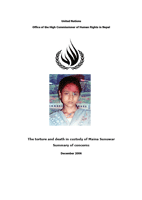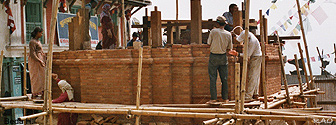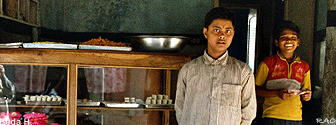For instance, in December 2006, OHCHR published The Torture and Death in Custody of Maina Sunuwar: Summary of Concerns, a report documenting obstacles to justice in the case of Maina, the 15-year-old girl killed within hours of her arrest in 2004 by the Nepal Army. During her visit here in January, the High Commissioner discussed the case with the Home Minister and COAS and later reported, "I was informed that orders will be given to launch a thorough police investigation, with the full cooperation of the Nepal Army, to clarify the circumstances of her death so that those responsible can be held accountable." In
fact, the Nepal Army has failed to provide us copies of any court of inquiry
(investigation) reports or court martial judgments relating to human rights
violations involving the NA, contrary to our Agreement with the Government.
December 2006
24 March 2007 A team from OHCHR-Nepal on Friday monitored the exhumation of the remains thought to be those of Maina Sunuwar, the 15-year-old girl who was allegedly tortured and died in the custody of the (Royal) Nepalese Army (NA) in February 2004. The team was accompanied by an international forensic expert, who assisted forensic pathologists from the Department of Forensic Medicine at the Teaching Hospital in the exhumation after an offical request was received. The remains were exhumed from the grounds of the NA's Birendra Peace Operations Training Centre in Panchkhal, Kavre District , where military personnel are trained before being deployed on UN peacekeeping missions. The exhumation marks a crucial step in the criminal investigation launched by police into the girl's death, which has been stalled for many months due to the NA challenging the jurisdiction of civilian authorities over the case as well as the reluctance of authorities to proceed with an investigation. As part of a court martial, the NA in September 2005 found three military personnel guilty of failing to dispose of the body properly. However, details regarding the court martial and the NA's court of inquiry investigation that preceded it have never been made public. The NA has also failed to provide court of inquiry and court martial Document to OHCHR despite repeated requests. While the exhumation is a positive development, it is essential that police complete a thorough investigation, with full cooperation from the NA. During her visit to Nepal in January, the High Commissioner for Human Rights, Louise Arbour, received assurances from the NA Chief of Staff and the Home Minister that an investigation would be carried out without delay. "The exhumation Friday of remains thought to be those of Maina Sunuwar marks a crucial step forward in the quest for justice for her alleged torture and death. A full criminal investigation by police must now proceed to determine who was responsible and to hold them fully accountable," said Sandra Beidas Officer In Charge of OHCHR-Nepal. |





